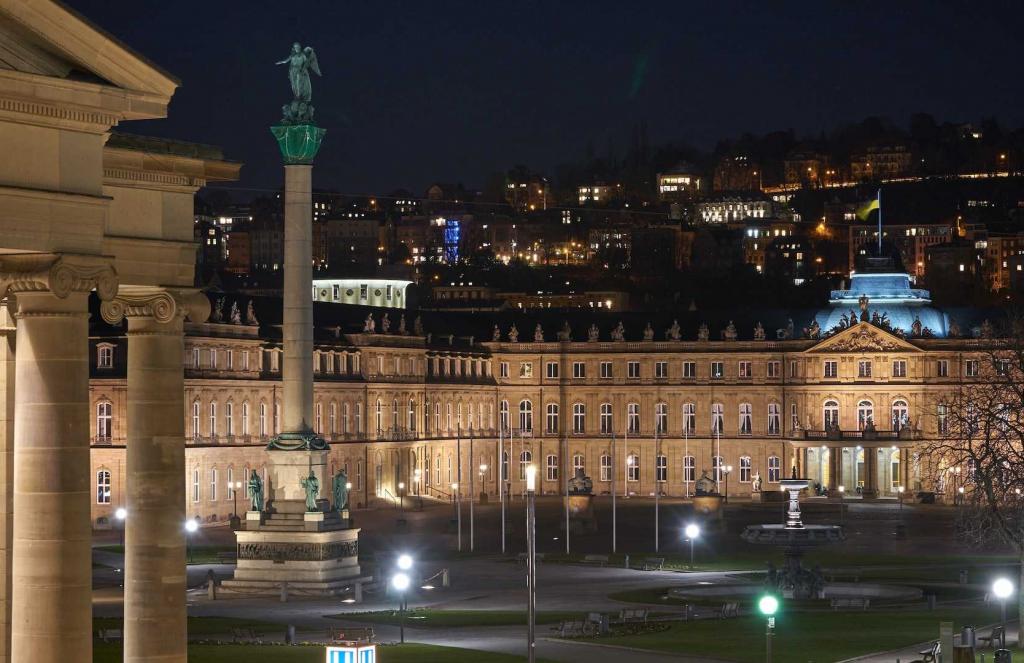Thessaloniki gets ready for its metro launch in November
The underground rapid transit lines have been under construction for almost two decades due to various project delays
 TheMayor.EU logo
TheMayor.EU logo 
Neues Schloss, the old residence of the King of Baden-Württemberg, now a seat of several ministries , Source: Bruno Kelzer / Unsplash
The move is supposed to help reduce knife crime in cities like Stuttgart, Freiburg and Mannheim
Today, authorities in the German Federal State of Baden-Württemberg announced new legislation which allows municipalities to set up weapons-free zones. The legislation was first proposed at the start of September as a way to reduce knife crime in the state.
As the SWR reports, the legislation would apply mainly to different varieties of knives. Cities, however, cannot apply the ban on a whim. Instead, it can only be used in spaces where a lot of people gather or in zones deemed a ‘knife-crime hotspot’. On the other hand, these designations can be applied via crime analysis by the local police departments.
According to data from the Baden-Württemberg Ministry of the Interior, last year there were around 14,900 violent crimes in the state involving a knife, while 24 of those ended with a fatality. Additionally, 40% of all aggressive crimes, robberies, physical harm and etc, happen in public spaces.
At the same time, violent crimes involving knives have gone down by around 10% in 2021, compared to 2020. Only 1,000 cases involved serious or dangerous bodily harm, followed by 340 cases of extortion or robbery, 141 cases of attempted murder and manslaughter and 18 crimes against sexual self-determination.
Stuttgart authorities are some of the first to show interest in the policy. Other larger cities in Baden-Württemberg that are interested in the ban include Mannheim and Freiburg.
The ban should prevent people from carrying knives with a fixed or lockable blade of more than four centimetres. Violators could be liable for a fine as high as 100,000 euros, while the city council would ultimately decide on the size of the zones, as well as the hours they apply.

The underground rapid transit lines have been under construction for almost two decades due to various project delays

Now you can get your wine in Talence by paying directly in Bitcoin

That’s because the state has to spend money on updating the railway infrastructure rather than subsidizing the cost of the popular pass

Rethinking renewable energy sources for the urban landscape

The examples, compiled by Beyond Fossil Fuels, can inform and inspire communities and entrepreneurs that still feel trepidation at the prospect of energy transition

Now you can get your wine in Talence by paying directly in Bitcoin

The 10th European Conference on Sustainable Cities and Towns (ESCT) sets the stage for stronger cooperation between the EU, national and local level to fast track Europe's transition to climate neutrality.

At least, that’s the promise made by the mayor of Paris, Anne Hidalgo

The underground rapid transit lines have been under construction for almost two decades due to various project delays

At least, that’s the promise made by the mayor of Paris, Anne Hidalgo

Hostal de Pinós is located in the geographical centre of the autonomous region

Despite its church-y name, the district has long been known as the hangout spot for the artsy crowds

Urban dwellers across the EU are having a say in making their surroundings friendlier to people and the environment.

Forests in the EU can help green the European construction industry and bolster a continent-wide push for architectural improvements.

Apply by 10 November and do your part for the transformation of European public spaces

An interview with the Mayor of a Polish city that seeks to reinvent itself

An interview with the newly elected ICLEI President and Mayor of Malmö

A conversation with the Mayor of Lisbon about the spirit and dimensions of innovation present in the Portuguese capital














